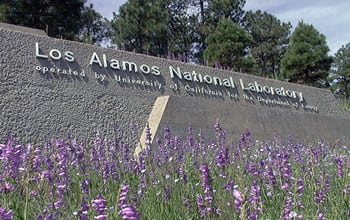
The National Nuclear Security Administration extended Los Alamos National Laboratory management and operations contractor Triad National Security for five more years, through Nov. 1, 2028, the agency announced Tuesday.
In the third such mass-extension this year for a nuclear-weapons site contractor, the agency picked up five one-year options on Triad’s contract simultaneously.
Triad includes team members the Battelle Memorial Institute, the Texas A&M University System and the University of California, with integrated industry subcontractors Fluor Corp. and Huntington Ingalls Industries.
Triad’s extension is consistent with the National Nuclear Security Administration’s (NNSA) plans to shift weapon-site contractors to five-year deals with five-year options and follows the agency’s decisions in April and August to pick up five years worth of one-year options on the site management contracts for Honeywell-led teams at the Sandia National Laboratories and the Nevada National Security Site.
All three of these contracts, when NNSA put them out to bid, were advertised by the agency with five years of guaranteed money and the opportunity to earn option years one at a time.
Since then, as part of the Enhanced Mission Delivery Initiative pulled together under Administrator Jill Hruby’s watch, the NNSA has decided that one-year options are potentially destabilizing for an agency that finds itself in the middle of major weapons-production construction projects while also beginning a series of four major nuclear-weapon refurbishments.
In that environment, Hruby said in a webcast question-and-answer forum on Thursday, “one-year contract for award terms were incredibly destabilizing at our labs, plants and sites.”
Meanwhile, citing the needs of the the NNSA, which is building its main plutonium pit production factory at the site, the Department of Energy’s Office of Environmental Management in September awarded an extension that could allow the Fluor-led Savannah River Nuclear Solutions to manage the Savannah River Site in Aiken, S.C., for up to five years, through September 2027.